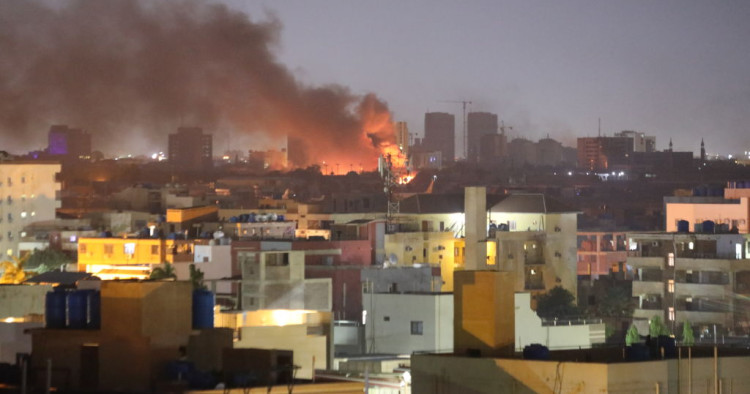Contents:
- Military power struggle explodes in Sudan
- Saudi-Houthi peace talks move ahead, but the Yemeni civil war is still far from over
- Foreign policy keeps Egypt on its toes
- US on potential collision course with UAE and Turkey over sanctions busting
- The deadlock over elections in Pakistan becomes more ominous
- Saudi-led summit on Syrian Arab League readmission stalls amid divisions
Military power struggle explodes in Sudan
David H. Shinn
Non-Resident Scholar
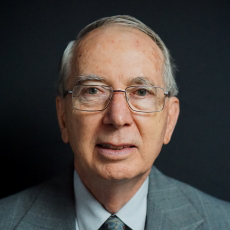
-
Major deadly fighting broke out on Saturday, in Sudan, between the regular Sudanese Armed Forces and the paramilitary Rapid Support Forces, which had ruled together since toppling a civilian/military government in 2021.
-
The Biden administration had been deeply engaged in multilateral diplomatic efforts to move Sudan back toward a civilian government; but those efforts collapsed as Sudan’s two main military factions failed to agree on plans to integrate their forces as well as feared losing their political-economic clout under a new civilian regime.
Major fighting, missile attacks, and artillery exchanges broke out in Sudan at various locations, including the capital of Khartoum, on Saturday, April 15, leaving nearly a hundred reportedly dead and many more injured as of Monday. The fierce clashes are between the Sudanese Armed Forces (SAF), led by Gen. Abdel Fattah al-Burhan, and the paramilitary Rapid Support Forces (RSF), controlled by Gen. Mohamed Hamdan Dagalo (known as Hemedti). Burhan and Hemedti also serve as deputy heads of Sudan’s ruling Sovereign Council. The two generals collaborated in staging a coup d’état in 2021 that ended a fragile military/civilian government that had been in power since 2019 and put the military fully in charge. Both the SAF and the RSF subsequently assured the international community they would pursue a return to full civilian government and eventually free elections.
Last December, with international encouragement, the SAF, RSF, and important civilian leaders negotiated a Framework Agreement designed to yield a civilian government. One of the goals of this process was to integrate into the SAF the independent RSF, which former President Omar al-Bashir created to subdue rebel factions during the conflict in Darfur (2003-20). During that period, the RSF engaged in atrocities; Saudi Arabia and the United Arab Emirates subsequently employed RSF units to combat the Houthis in Yemen. Following the Framework Agreement, the RSF said it was willing to integrate its forces into the SAF over a period of 10 years, while the SAF argued it should occur in two years. The two military organizations disagreed on this and other issues; their deepening power struggle turned violent on Saturday.
Whether the SAF and the RSF would actually be willing to give up power to usher in the return of civilian rule was always in question. Both organizations control extensive economic activity in Sudan. The SAF owns or has significant investment in a variety of companies, a bank, and manufacturing enterprises. The RSF, in turn, is engaged in banking, agricultural projects, and illegal gold mines in collaboration with the Russian mercenary organization known as the Wagner Group, which also trains the RSF and provides it military equipment. The SAF and RSF would risk losing their political power and much of their economic wealth under civilian rule.
The Biden administration has, nonetheless, been deeply engaged in efforts to move Sudan toward civilian government. It named a series of special envoys for the Horn of Africa and, last year, assigned an ambassador, John Godfrey, to Khartoum for the first time in more than two decades. When Sudan created a military/civilian government after the toppling of President Bashir in April 2019, Washington removed Khartoum from the list of state sponsors of terrorism and began to lift sanctions. Yet following the 2021 military coup, the United States revoked the “carrot” approach and threatened a return to “sticks.” Working closely with the United Kingdom, Saudi Arabia, and the UAE (the Quad), the U.S. encouraged all local Sudanese factions to accept the Framework Agreement. The Biden administration was cautiously optimistic about the outcome until it all collapsed on Saturday.
Follow on Twitter: @AmbShinn
Saudi-Houthi peace talks move ahead, but the Yemeni civil war is still far from over
Ibrahim Jalal
Non-Resident Scholar

-
As Saudi and Omani negotiators iron out the details of a phased de-escalation roadmap to end the regional layer of the war in Yemen, the Saudis hope the Houthis will soon reciprocate with their own concessions.
-
The Saudis clearly want to extricate themselves from the war in Yemen; realizing this, the Houthis are pursuing gains-maximization tactics in the negotiations.
Over the weekend, the International Committee of the Red Cross (ICRC) completed a prisoner swap of 869 Yemeni war prisoners, abductees, as well as arbitrarily detained and/or forcibly disappeared people, marking the second-largest such exchange in Yemen since 2014. And on Monday, April 17, Saudi Arabia unliterally freed 100 more prisoners of war and flew them back to Yemen. The largest prisoner swap, of nearly 1,081 people, occurred in October 2020; however, this one included several prominent figures, such as former Defense Minister Maj. Gen. Mahmoud al-Subaihi (included in United Nations Security Council Resolution 2216), Maj. Gen. Nasser Mansour Hadi (brother of the former president), and four journalists sentenced to death by the Houthis. Ironically, the four journalists arbitrarily imprisoned over their profession were swapped for Samira Marish, a Houthi-recruited-and-trained bombmaker who assassinated more than 10 army officers in al-Jawf and Marib. A number of other notable individuals, such as Brig. Gen. Faisal Rajab and al-Islah party politician Mohammad Qahtan, along with thousands of others, have yet to be included on any prisoner swap list and continue to wait to be released. The latest exchange largely fulfils the March 2023 negotiations, attended by the delegations of the government of Yemen, the Houthis, and Saudi Arabia in Switzerland and supported by the Office of the Special Envoy of the U.N. Secretary General for Yemen, and builds on the Jordan-hosted talks from 2022 over prisoner releases. But the sides have yet to deliver on their promise of realizing an all-for-all prisoner swap, as per the 2018 Stockholm Agreement.
An important confidence-building measure that reunites many families, the April 2023 prisoner swap came on the heels of the first public visit of Saudi Amb. Mohammed al-Jaber to Sana’a on April 8-13, during which he held intensive negotiations with senior Houthi figures, chiefly from Sa’adah governorate. The Houthi-appointed prime minister (de facto), Abdel-Aziz bin Habtour, a southern politician from the General People’s Congress, notably did not participate in the talks, according to footage and press reports. Amb. Jaber stayed for six days not only to negotiate but also to redevelop trust, rebuild relations, and further understand the changes happening in Sana’a. A day after Mohammed Ali al-Houthi, a member of the Houthi Supreme Political Council, criticized the Saudi delegation over its positioning as a mediator rather than a party to the conflict, Jaber met (again) privately with him. The Saudi-Houthi talks, whose content was discussed with the Yemeni government, focused on humanitarian, economic, security, and political issues, including the release of all prisoners, a cease-fire, the payment of salaries for public servants, border security, the lifting of air and maritime restrictions, a timed departure of coalition forces, a reconstruction package, and other measures leading to a comprehensive, politically negotiated settlement between Yemeni stakeholders. While the scope and breadth of the talks evolved during the negotiations, both the Houthis and Jaber described them as “positive,” “in-depth,” and “serious,” with partial agreements. Given the changes in the substance of the proposed roadmap, as well as Saudi Defense Minister Khaled bin Salman’s discussion with Yemen’s Presidential Leadership Council on April 6 about a truce ahead of Amb. Jaber’s visit to Sana’a, the Saudi side is preparing to hold further separate discussions with the internationally recognized Yemeni government as well as the Houthis.
Intensive Muscat-supported discussions in Oman and Jaber’s past unannounced visits to Sana’a helped pave the way for this round of talks in the Yemeni capital — especially after the China-brokered Saudi-Iranian rapprochement and earlier collapse of the U.N.-sponsored truce. As the discussions continue in a positive direction and start to bear some early fruit, Saudi Arabia hopes the Houthis will reciprocate Jaber’s visit with their own concessions including by visiting Saudi Arabia, a scenario that is increasingly likely as Saudi Arabia positions itself as a mediator and offers more incentives. Nevertheless, the Houthis recognize the Saudi desire to extricate itself from the war and, therefore, have attempted to maximize their gains in exchange for peace with Riyadh, not necessarily the rest of Yemen. Based on the Omani-mediated timetable, it was hoped that an agreement would be reached between the Yemeni government and the Houthis by late Ramadan, around the holy night of Laylat al-Qadr (mid-April), according to multiple sources and based on reported progress. But it remains to be seen when and where a final de-escalation roadmap agreement will be sealed. That said, a breakthrough, yet one mindful of Saudi security concerns, is in sight. Ending the regional layer of the war is a crucial step, but it is also important to temper expectations and acknowledge that current efforts are far from fully ending Yemen’s multi-layered conflict. If anything, the latest escalation in Sudan between the Sudanese Armed Forces and Rapid Support Forces highlights the challenges elite-centric quick fixes face in a country beset by competing sub-state formations, a multiplicity of armed actors, and excessive regional interference — yet another reminder of how ill-prepared “peace” initiatives in Yemen can quickly and easily collapse into another round of violence.
Follow on Twitter: @IbrahimJalalYE
Foreign policy keeps Egypt on its toes
Mirette F. Mabrouk
Senior Fellow and Founding Director of the Egypt program
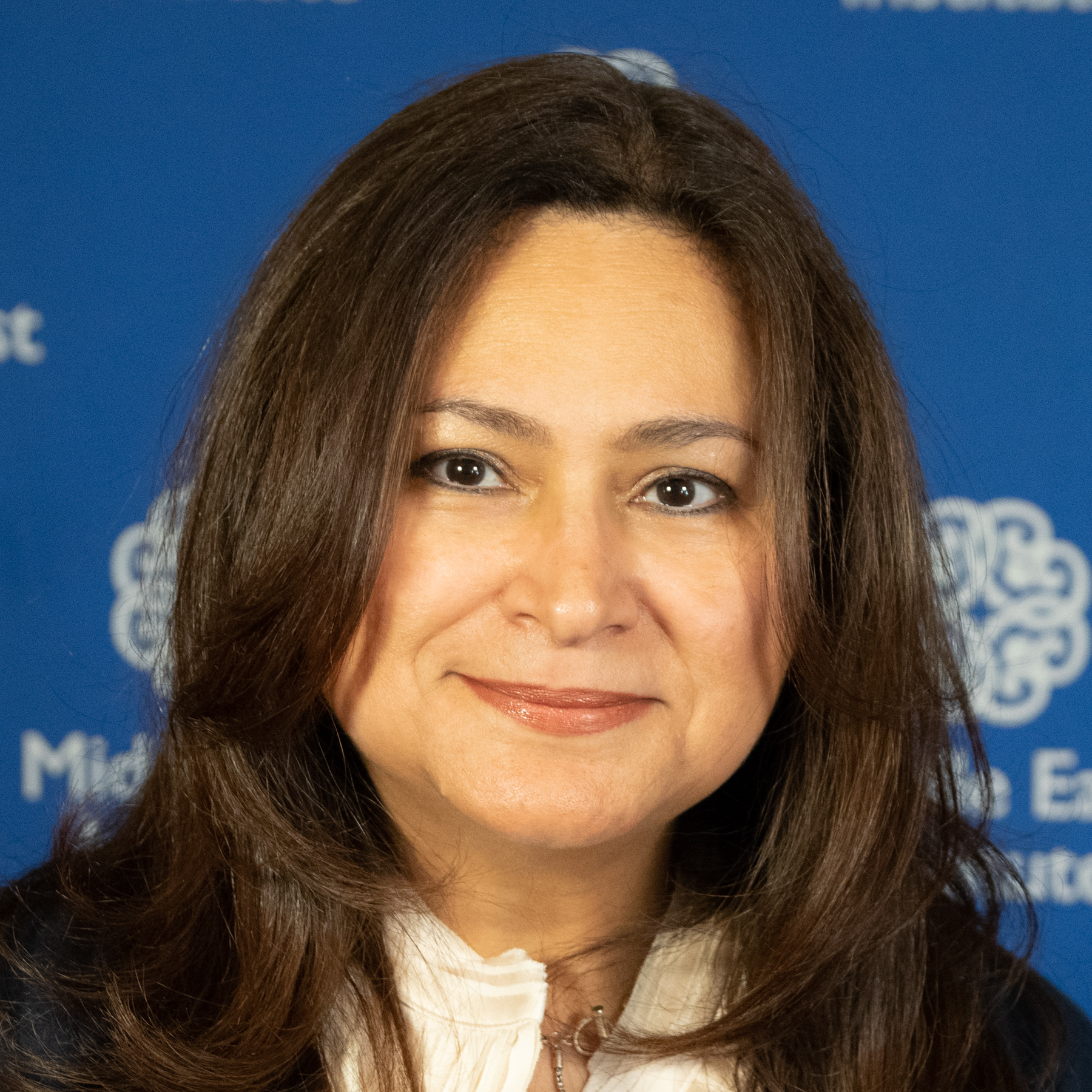
-
Egypt is inextricably linked to Sudan, via trade, 1,200 km of shared border, a shared river, and mutual security concerns.
-
The newfound mutual agreement between Egypt and Turkey might have as much to do with the changing fortunes of both countries as with new political temperance.
The last few days have been a full, if mixed, bag for Egypt in the foreign affairs sphere.
Fighting is still ongoing in Sudan, between army units loyal to Gen. Abdel Fattah al-Burhan, the head of Sudan’s transitional governing Sovereign Council, and paramilitary units from the Rapid Support Forces (RSF), led by Gen. Mohamed Hamdan Dagalo, more popularly known as Hemedti, the deputy head of the Sovereign Council. The fighting had already claimed 97 lives, as of early Monday, April 17, and it threatens to tip an already wobbling Sudan, one of Africa’s largest (and most strategically vital) countries, into chaos.
The fighting in Sudan has everyone on edge — the Arab League, the African Union, and various countries, including the United States and the United Kingdom, have already called on both sides to start immediate negotiations — but it is of particular concern to countries like neighboring Egypt. Egypt is inextricably linked to Sudan, via trade, a 1,200-kilometer-long border, a shared river, and mutual security concerns. There are no precise figures for the number of Sudanese nationals in Egypt, but estimates range between 3 million and 6 million, including refugees and Sudanese living and working in Egypt under a 2004 bilateral treaty guaranteeing freedom of movement, residence, labor, and property ownership. Small wonder, then, that Egyptian President Abdel-Fattah el-Sisi, who had already called on both sides to “prioritize the language of dialogue and national consensus,” spoke with United Nations Secretary General Antonio Guterres about the issue, stressing his fear for the domestic and regional ramifications if violence were to escalate further. On Sunday, April 16, the Arab League held an emergency session called for by Cairo and Riyadh, and the Egyptian representative warned against external interference in the conflict.
There have already been ramifications for Egypt. A number of Egyptian soldiers who had been in Marawi for joint training exercises were captured by the RSF, and according to a statement by the Egyptian Armed Forces, negotiations are currently underway for their return.
However, things are looking significantly rosier in another, formerly contentious, relationship.
After a decade of frosty relations that occasionally flared into pointed vocal recriminations and one particularly uncomfortable, if blessedly brief, period of saber rattling over the incursion of Turkish-backed forces in Libya two years ago, Egypt and Turkey appear to be mending fences. It has been a slow, tentative process over the past two years or so, during which the Egyptian side appeared significantly more cautious than the Turkish one. Relations between the two had been kept quiet since the removal in 2013 of former Egyptian President Mohamed Morsi of the Muslim Brotherhood by the Army following massive public demonstrations against him and the Brotherhood. Turkish President Recep Tayyip Erdoğan of the Islamist Justice and Development Party (AKP) later slammed what he called Western “double standards” in not denouncing the coup forcefully enough. Egypt recalled its ambassador from Ankara, with Turkey immediately reciprocating. That tension was followed by years of barely civil discourse, competition in Libya (where both sides have significant interests), and heightened tensions in the Eastern Mediterranean over territory and energy resource extraction rights. The latter became a particular issue after Turkey signed a contentious maritime boundary treaty with the Libyan Government of National Accord in 2019, generally held internationally to be in contravention of the U.N. Convention on the Law of the Sea. The treaty, which established an exclusive economic zone, was particularly detrimental to Greece, a member of the Eastern Mediterranean Gas Forum, a regional grouping founded by Egypt a year earlier and comprising Cyprus, Egypt, France, Greece, Israel, Italy, Jordan, and Palestine.
However, two years ago, Turkey began tentative overtures and, last November, after months of gentle Qatari handholding, Sisi and Erdoğan met briefly in Doha for a photo op at the World Cup. That was followed by the first visit of a Turkish foreign minister to Egypt in a decade. Turkey has continued to be more ostensibly enthusiastic in its tone; Turkish Foreign Minister Mevlüt Çavuşoğlu said at a press conference with his Egyptian counterpart, Sameh Shoukry, that they are looking into exchanging ambassadors again and preparing for a summit between the two leaders “in the near future,” while the Egyptian foreign ministry spokesperson said merely that those measures were being discussed.
Shoukry’s comments were also warm though; he said his visit during Ramadan was portentous and described a “warm welcome from his dear brother” Çavuşoğlu, but, more importantly, noted a “shared vision” on Libya, formerly one of the most contentious areas of the relationship.
The newfound mutual agreement might have as much to do with the changing fortunes of both countries as with new political temperance. Erdoğan’s AKP currently faces a host of challenges, and the country could do with more regional allies. Egypt, in the midst of an economic crisis, has too much on its plate to want to keep up regional frictions. And both countries are keen to shore up their regional and international images and clout; a more unified Mediterranean front is far more likely to achieve that target.
Follow on Twitter: @mmabrouk
US on potential collision course with UAE and Turkey over sanctions busting
Jonathan M. Winer
Non-Resident Scholar
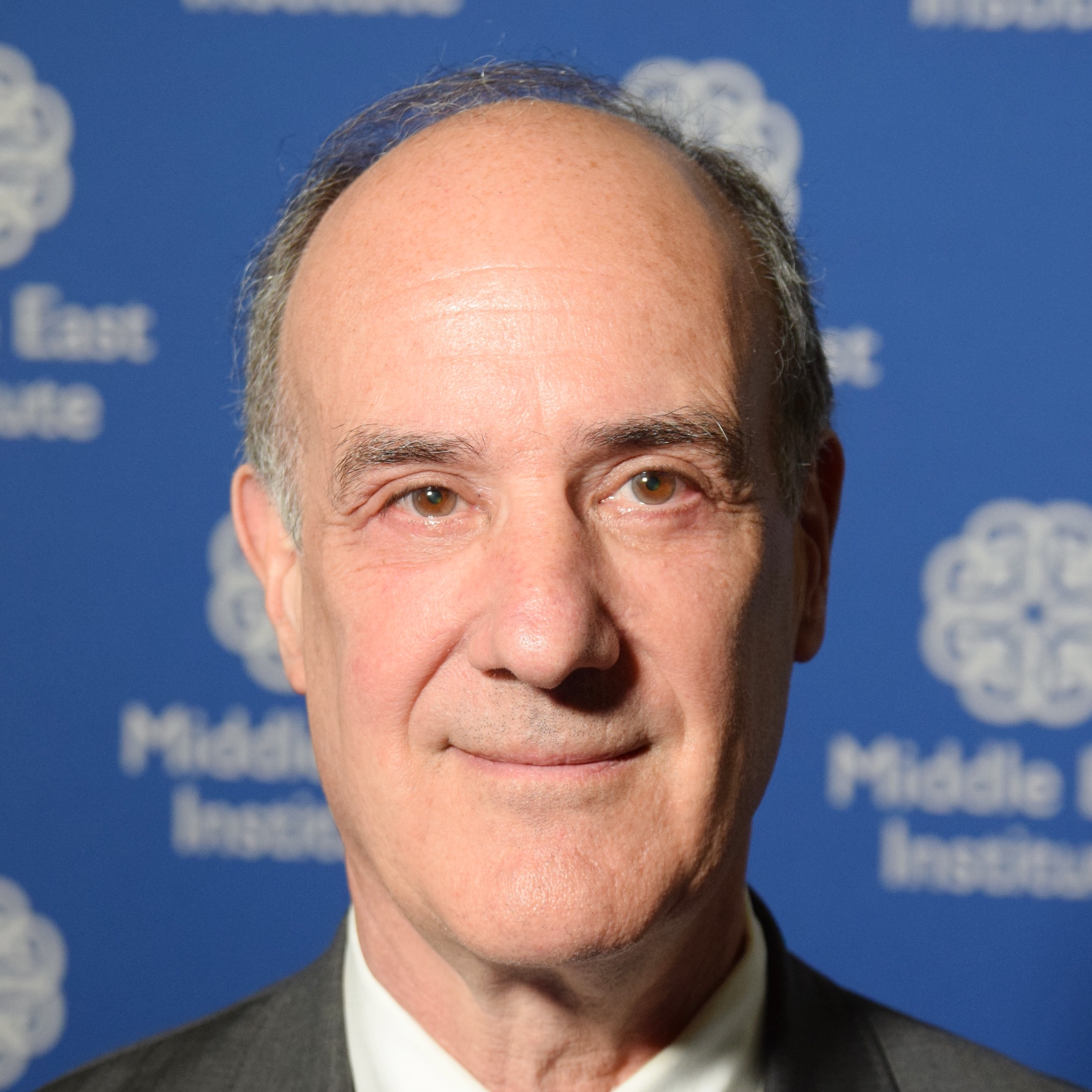
-
The U.S. is pushing back on Turkish and Emirati firms, which have provided material support to Russia for its war effort and helped Moscow circumvent Western sanctions.
-
As the Russo-Ukrainian conflict enters a potentially decisive period in the ground war, the Biden administration is almost certain to ratchet up the consequences on Emirati and Turkish sanctions busters, but Washington’s use of other political or diplomatic tools is more difficult to predict.
Since Russia’s 2022 full-scale invasion of Ukraine, it’s become increasingly obvious that both the United Arab Emirates and Turkey have been seeking to profit, politically and economically, off the conflict.
The UAE’s role has been remarkably bold, as shown in the affectionate post-invasion contacts between Emirati leader Mohammed bin Zayed and Russian President Vladimir Putin. It has also been reflected economically, in the highly visible presence of Russians and Russian businesses in Dubai, effectively facilitating Russia’s ability to circumvent Western sanctions. The significance of this Emirati assistance in sanctions busting has been so large that the United States sent multiple high-level delegations to the Emirates in the first months of this year to issue warnings on the subject to both the Emirati government and major business actors there.
Turkey, too, has been profiting off the war, both politically, as reflected by Turkish President Recep Tayyip Erdoğan’s invitation to Putin to visit Turkey later this month, and economically, with the massive amount of new business for Turkish companies emerging from the conflict.
Now, the U.S. has pushed back, adopting a series of secondary sanctions on Emirati and Turkish companies for their role in helping Russia (and in the case of Dubai, Iran) circumvent the West’s punitive financial and economic measures. The most recent sanctions package, issued on April 12, targets a slew of Turkish and Emirati firms for providing material support to Russia, including items for its defense sector. The latest round of sanctions on these firms was described as “a warning shot” by an anonymous U.S. official, even as Erdoğan continues to state publicly that it is time for Putin to stop the war.
The frantic sending of signals by the various parties to the conflict reflects a reality that the year-long effort by Turkey and the UAE to straddle the Russian-Ukrainian war has largely benefited Russia. Avoiding strategic consequences from that stance is increasingly problematic for both the UAE, which likes to refer to itself as a “strong ally” of the United States, and for Turkey, a member of the North Atlantic Treaty Organization (NATO) since 1952.
Will anyone blink? If not, will there be a serious collision?
As the Russo-Ukrainian conflict enters a potentially decisive period in the ground war, the Biden administration is almost certain to ratchet up the consequences on Emirati and Turkish sanctions busters. The question of the extent to which the U.S. government will also employ other tools, such as those involving the overall bilateral security relationships, is much harder to answer.
Follow on Twitter: @JonathanMaWiner
The deadlock over elections in Pakistan becomes more ominous
Marvin G. Weinbaum
Director, Afghanistan and Pakistan Studies

-
Pakistan’s political crisis has evolved into a full-blown intra- and inter-institutional power struggle, differing from previous political confrontations by the degree to which the country’s democratic institutions have become politicized.
-
Unless the present caretaker coalition government and the opposition PTI somehow find a compromise, the government could well decide to cancel the October 2023 federal elections.
In Pakistan, the political-turned-national crisis has evolved into a full-blown intra- and inter-institutional power struggle. Each stakeholder is seeking to maximize its own power while subjugating that of the other. During the last two weeks, a conflict over holding early elections in the all-important Punjab Province greatly intensified both between and within the judicial and legislative branches. Notwithstanding the sitting Sharif government’s decision that provincial and federal elections should both be held in October 2023, Pakistan’s Chief Justice Umar Ata Bandial sparked controversy last week by declaring May 14 as the date for the Punjab election; he also ordered the country’s Election Commission to make the necessary preparations. But the government then proceeded to defy the Supreme Court’s orders, complaining that it cannot provide the billions of Pakistani rupees and thousands of security personnel said to be required for holding the election. Taking the government’s side, two senior judges of the Supreme Court passed orders to suspend the suo moto jurisdiction of the chief justice especially as applied to issues pertaining to political matters.
To add to the confusion, the government-controlled legislative assembly then stepped in, approving a bill intended to curtail the chief justice’s authority. The law would annul the chief justice’s ruling that favored the opposition’s request to hold the Punjab election in May. The chief justice responded with the support of an eight-judge bench by striking down the bill with a preemptive injunction that accused the government of direct interference with the independence of the judiciary. In turn, the national assembly passed a resolution stating that “an arbitrary judiciary” could not infringe on the parliament’s undisputed constitutional right to propose laws.
These events occurred as Pakistan celebrated the golden anniversary of its democratic constitution this month. By the judiciary and executive-cum-legislature’s refusal to recognize the other’s actions, the supposed institutional guardians of the constitution have now taken to violating its fundamental principle of the separation of powers. The current national crisis differs from previous political confrontations by the degree to which the country’s democratic institutions have become politicized. It has also contributed to Pakistan’s already fractured social structure that has pitted citizens against one another and normalized hate and violence.
Unless the present caretaker coalition government and the opposition Pakistan Tehreek-e-Insaf (PTI) somehow find a compromise, the government could well decide, citing the country’s dire security and economic conditions, to cancel the October 2023 federal elections. With the current government’s term ending in October, in all probability an unelected government made up of technocrats would, with the support of the military establishment, assume the reins of power for an indefinite period. As under Pakistan’s previous authoritarian regimes, the major political parties would be expelled from the political arena and the judiciary made to bend to the will of the government.
Looking for a way out of the current deadlock, two parties in the ruling coalition, the Pakistan People’s Party and Jamaat-e-Islami, recently promoted discussions between the government and the opposition. Possibly the best hope for compromise lies with their reaching an agreement on holding elections whose results will allow Imran Khan’s PTI to demonstrate its electoral strength but also ensure political survival of the other major parties. But hopes for talks were dashed on April 16, when Prime Minister Shehbaz Sharif’s Pakistan Muslim League-N and other members of the 11-party coalition announced their refusal to hold talks on the elections or any other subject. The prospect thus looms that if polls are held on May 14 or later, they may turn violent, setting off a deep civil conflict that will mark the end of Pakistan’s latest episode of democratic rule.
Research assistant Naad-e-Ali Sulehria contributed to this piece.
Follow on Twitter: @mgweinbaum
Saudi-led summit on Syrian Arab League readmission stalls amid divisions
Charles Lister
Senior Fellow, Director of Syria and Countering Terrorism & Extremism programs
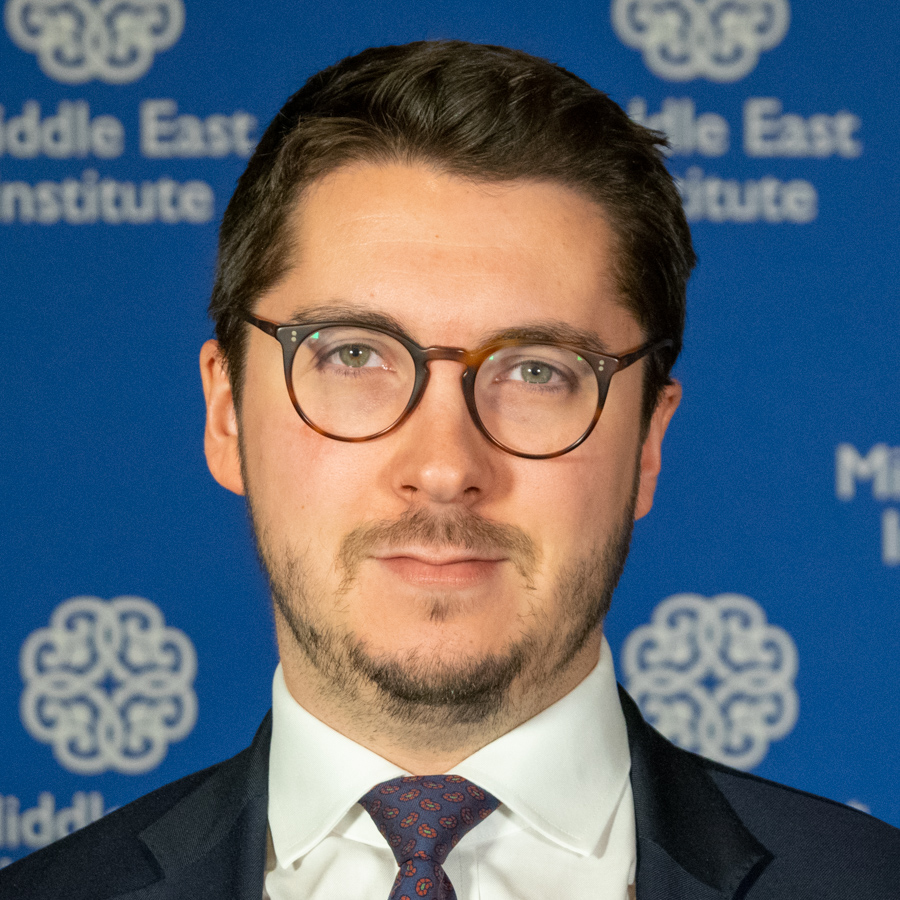
-
Saudi Arabia is due to host the next Arab League summit in Riyadh on May 19 and is newly determined to include Assad’s regime; but despite convening the Gulf states plus Iraq, Jordan, and Egypt in Jeddah on April 14 to discuss the issue, divisions remained.
-
The United States is still strikingly absent and apparently disinterested in engaging meaningfully in Syria diplomacy, a position that is likely to eventually backfire.
On April 14, Saudi Arabia convened the foreign ministers of all the Gulf Cooperation Council (GCC) states plus Iraq, Jordan, and Egypt in Jeddah to discuss a potential readmission of Syria to the Arab League. The multilateral gathering was planned hurriedly by Saudi Arabia following its recent China-brokered rapprochement with Iran and decision to reopen a diplomatic presence in Damascus. Saudi Arabia is due to host the next Arab League summit in Riyadh on May 19 and is newly determined to include Bashar al-Assad’s regime in its discussions.
Despite Saudi Arabia’s best efforts and behind-the-scenes lobbying from states like the United Arab Emirates that are already friendly with the Syrian regime, the Jeddah summit stalled. Several countries refused to support such a swift normalization of the Assad regime, decrying the recent trend of unconditional re-engagement. Qatar had made its stance clear in the days before the meeting, insisting that its opposition to regime normalization would remain in place until meaningful progress had been made on ending the crisis, releasing more than 100,000 political prisoners, resolving mass displacement, and negotiating a representative and inclusive political settlement. During the meeting itself, opposition to such speedy and unconditional normalization emanated from other governments too, including those of Kuwait, Egypt, and Jordan.
In a public statement issued following the meeting, Saudi Arabia’s Ministry of Foreign Affairs insisted that regional states needed to assert a leadership role in resolving Syria’s crisis and that “steps” would be taken to do so. An extensive list of deeply-rooted challenges were then laid out, including a comprehensive resolution of Syria’s humanitarian crisis; an increase in external aid access into Syria; the establishment of safe conditions for refugee returns; a continuation of counterterrorism efforts; a renewed focus on countering drug trafficking; the release of political prisoners; ending foreign occupations and interventions on Syrian soil; and initiating a genuine political process to resolve the crisis writ large.
Relaying such an extensive “to-do” list following a meeting that appeared to have been intended to swiftly sweep most of those issues under the rug underlines the scale of the challenge ahead. Individual states have normalized ties with Assad’s regime, but they have little or no real-world benefits to show for it. Even the UAE, the most publicly determined normalizer, has notably engaged in little more than optics and rhetorical memorandums of understanding. Jordan made its own push for normalization in late 2021, which spectacularly backfired, so its recent skepticism of Saudi intentions speaks volumes. Others, like Egypt, have wavered between supporting normalization and opposing it, while Qatar and Kuwait have remained consistently and determinedly opposed.
All the while, the United States is strikingly absent and apparently disinterested. As far as the Biden administration is concerned, meaningfully engaging in Syria diplomacy appears to be completely off the radar. Earlier public statements lambasting normalizing actions have more recently given way to meek criticism and recommended conditionalities. Such short-sighted disinterest, resulting primarily from a long-standing directive to keep Middle East crises like Syria off President Joe Biden’s desk, are likely to eventually do the opposite. Every root cause and driver of the 2011 crisis is worse today, and unconditional or haphazard regime normalization will only exacerbate that unsustainable state of affairs.
Follow on Twitter: @Charles_Lister
Photo by Mahmoud Hjaj/Anadolu Agency via Getty Images
The Middle East Institute (MEI) is an independent, non-partisan, non-for-profit, educational organization. It does not engage in advocacy and its scholars’ opinions are their own. MEI welcomes financial donations, but retains sole editorial control over its work and its publications reflect only the authors’ views. For a listing of MEI donors, please click here.













